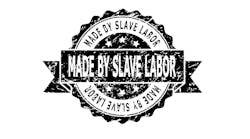On Feb. 1, the Office of Federal Contract Compliance Programs (OFCCP) sent 1,000 Corporate Scheduling Announcement Letters to federal contractor employers informing them they can expect an audit of their compliance with federal Affirmative Action regulations.
Other federal contractors should not take comfort in the fact that they have not received one of these letters—no advance warning letter is required by law prior to a company being audited by OFCCP.
If you wish to confirm whether any of your workplaces was mailed one of these letters, a federal contractor can email a written request for this information on company letterhead to the Division of Program Operations at [email protected].
You should understand that these warning letters are not considered a formal notice of an audit. Instead, they are intended to provide employers with advance notice to allow you additional time to gather Affirmative Action Plan information and supporting documentation, such as employee compensation records. OFCCP also encourages contractors to take immediate steps to conduct a self-audit and correct compliance problems prior to the government audit.
OFCCP, which is part of the Department of Labor (DOL), will begin sending formal audit scheduling letters on March 19. Keep in mind that contractors will only have 30 days from the date of the scheduling letter to provide OFCCP with their Affirmative Action Plans and any additional requested documents.
The audits will take place within certain parameters, OFCCP says. These include not auditing more than 10 establishments of a single contractor. No single DOL district office will evaluate more than four establishments of a single contractor. In addition, no establishment that has completed review within five years will be included on the scheduling list.
If your company has received one of these letters, now is the time to start preparing for an audit—don’t wait until the audit letter arrives, warns attorney Emily Paige Harbison of the law firm of Baker McKenzie.
“Your company should quickly conduct a self-audit to gauge how actual results compare to its affirmative action plan. Be sure to notify your facilities to keep their eye out for any scheduling letters, and forward them to the appropriate people internally as soon as possible,” she advises.
You May Be a Contractor
Even if you don’t believe your company is a federal contractor, you may discover to your cost that you are subject to the same civil rights regulations. You don’t even have to be a full-time contractor to find yourself in the crosshairs of OFCCP, explains attorney Jayna Marie Rust of the law firm of Thompson Coburn LLP.
The employment-related rules apply to agreements between a federal agency and a private sector entity regarding the purchase, sale or use of personal property or nonpersonal services. Among what are defined as “nonpersonal services” are utilities, construction, transportation, research, insurance and fund depository. They also apply if your enterprise is affiliated with any company that does business with the government.
Laws and regulations require an employer adhere to certain stated policies and pursue affirmative action plans to ban employment discrimination based on race, color, religion, sex, sexual orientation, gender identity or national origin; certain classes of veterans; or physical disabilities. These rules also require the company to provide certain safeguards for protected employees and include those requirements in its subcontracts and purchase orders that rise above a certain monetary threshold.
As a result, you may be surprised to find out that you are violating contractor requirements without realizing it and incur enormous costs as a result. This isn’t just attorney scare talk, either. Last October State Street Corp., an asset management firm, paid a $5 million settlement to the government after finding itself in this situation. Other recent high-profile cases involved B&H Foto & Electronics Corp., a retailer of imaging, audio and video equipment, KPMG auditing services and the Bank of America.
Among other potential threats, the government can seek back pay and other relief for victims of discrimination and refer the case to the Department of Justice to institute civil lawsuits. The government also can impose administrative sanctions such as withholding progress payments and barring the company from receiving future contracts, modifications of existing contracts or contract extensions.
“Not all violations of a company’s obligations under the employment-related rules will require much remediation, but some will,” Rust observes. “Depending on the violation and the company’s posture, the government’s remedies can place a heavy burden on the company.”
Given the potential ramifications an employer can face for violating these rules, companies that do business with or receive funds from the government or its contractors, or who are affiliated with government contractors, should be diligent in understanding their employment-related obligations, she stresses.
To protect yourself, assess current agreements in light of the applicable laws and regulations to determine whether they apply to your company. If you find out that they do but you haven’t been following them, consult with an attorney experienced in this area to find out how to best remedy the non-compliance before it comes to the government’s attention.
“Following these steps may result in some unexpected cost or inconvenience for your company, and those issues will undoubtedly factor into how much attention your company may pay to these rules,” Rust admits. “What should not impact your decision, however, is any presumed posture of the current administration.”
Even under President Trump, the OFCCP has continued to press cases brought under the prior administration. “Furthermore, even if the future director of OFCCP does reduce the agency’s enforcement in this area, the company’s current actions may be subject to a review under a future administration,” Rust points out.




